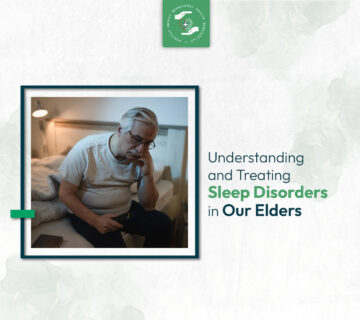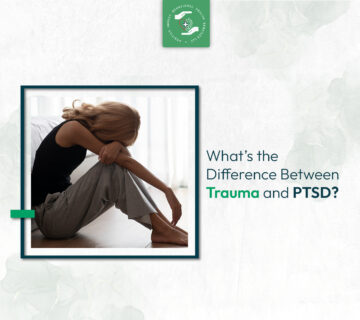Mindfulness has become a buzzword in recent years, but what does it really mean, and how can it help with your behavioral health? In this blog, we will explore the concept of mindfulness, its benefits, and practical ways to incorporate mindfulness into your daily life to improve your overall well-being.
Understanding Mindfulness
Mindfulness is the practice of being fully present and engaged in the moment, without judgment. It involves paying attention to your thoughts, feelings, and surroundings in a calm and focused manner. By understanding the basics of mindfulness, you can begin to see how powerful this practice can be for improving your behavioral health.
Let’s break it down a bit more: mindfulness can be seen as a mental state achieved by focusing awareness on the present, while calmly acknowledging and accepting one’s feelings and thoughts. This means not dwelling on the past or worrying about the future, but instead, living in the here and now. With practice, this heightened state of awareness can help you detach from unhelpful thought patterns and cultivate a sense of peace and clarity.
It’s important to note that mindfulness is rooted in ancient meditative practices, especially those from Buddhist traditions. However, it has been adapted and simplified for modern use, making it accessible to people from all walks of life. Today, mindfulness is practiced in many different ways, including meditation, breathing exercises, and mindful movements such as yoga or tai chi. Each method offers its own set of benefits, but they all aim to enhance your ability to stay present and engaged with your current experience.
The Benefits of Mindfulness on Behavioral Health
Mindfulness has been shown to reduce stress, anxiety, and depression. It can also enhance emotional regulation, improve concentration, and foster a greater sense of well-being. By regularly practicing mindfulness, individuals can experience improved behavioral health outcomes and better overall mental health.
One significant benefit of mindfulness is its impact on stress reduction. When you practice mindfulness, you’re training your brain to focus on the present moment rather than ruminating on past stressors or future worries. This shift in focus can be incredibly calming, helping to lower cortisol levels and reduce the physical and emotional toll of stress.
Moreover, mindfulness can lead to better emotional regulation. By staying mindful, you become more aware of your emotions as they arise, which means you can address them more effectively rather than being swept away by them. This awareness can reduce impulsivity and increase your ability to respond to situations thoughtfully, rather than reacting out of habit or emotion.
Another remarkable benefit is the improvement in concentration and cognitive function. Regular mindfulness practice has been linked to enhanced attention and memory retention. By sharpening your focus, mindfulness allows you to be more productive and efficient in your daily tasks, positively impacting various aspects of your life. The added bonus of feeling more centered and present means you’re likely to find greater enjoyment in the simple pleasures of life, further enhancing your behavioral health.
Simple Mindfulness Techniques to Try
Incorporating mindfulness into your daily routine doesn’t have to be complicated. Simple techniques such as mindful breathing, body scan meditation, and mindful walking can be easily practiced throughout the day. These techniques can help you stay grounded, calm, and focused, ultimately enhancing your behavioral health.
Mindful breathing is one of the simplest yet most effective techniques. Begin by finding a quiet place to sit or lie down. Close your eyes and focus on your breath. Notice the sensation of the air entering and leaving your body. If your mind starts to wander, gently bring it back to your breath. Even just a few minutes of mindful breathing can have a soothing effect on your mind and body.
Another straightforward technique is the body scan meditation. Lie down comfortably and close your eyes. Slowly bring your attention to different parts of your body, starting from your toes and working your way up to your head. Notice any sensations, tightness, or areas of discomfort. Spend a few moments focusing on each area, breathing into any tension and allowing it to release. This technique can help you become more connected to your physical self and promote a sense of relaxation and awareness.
Mindful walking is a wonderful way to integrate mindfulness into your daily life. Choose a path where you can walk undisturbed. As you walk, pay attention to the sensation of your feet touching the ground, the movement of your body, and your surroundings. Notice the sights, sounds, and smells around you. Walking mindfully not only provides physical exercise but also helps clear your mind and reduces stress.
Overcoming Common Mindfulness Challenges
While mindfulness can be highly beneficial, some may find it challenging to practice consistently. Common obstacles include a busy schedule, a restless mind, and unrealistic expectations. By acknowledging these challenges and developing strategies to overcome them, you can successfully integrate mindfulness into your daily life.
Short on time? Try micro-mindfulness. These are brief, mindful moments integrated into your day. Whether it’s a five-minute breathing exercise between meetings or a one-minute body scan before bed, even small doses of mindfulness can make a big difference in how you feel. Remember, it’s about quality, not quantity.
For a restless mind, guided meditations can be incredibly helpful. There are numerous apps and online resources offering guided sessions ranging from a few minutes to an hour. These guided practices can provide structure and keep your mind anchored, making it easier to develop a regular mindfulness habit.
Setting realistic expectations is also crucial. Mindfulness is not a quick fix. It’s a skill that takes time to develop. Be patient with yourself and celebrate small victories along the way. If you find your mind wandering, remember that’s normal. Gently guide it back to the present without self-judgment.
Integrating Mindfulness into Your Daily Routine
To make mindfulness a regular part of your life, start with small steps. Set aside a few minutes each day for mindfulness exercises, gradually increasing the time as you become more comfortable. Additionally, finding opportunities to practice mindfulness in everyday activities, such as eating, cleaning, or commuting, can help you maintain a consistent routine.
One practical tip is to link mindfulness with other daily habits. For example, take a few mindful breaths while you brush your teeth or practice a body scan during your morning shower. This approach makes mindfulness a part of your routine without needing extra time.
Another effective strategy is to use reminders. You can set alarms on your phone or place sticky notes in visible spots as cues to pause and practice mindfulness. These reminders can help reinforce the habit until it becomes second nature.
Surround yourself with a supportive community. Joining a mindfulness group or engaging with online forums can offer encouragement and share practical tips. Being part of a community can motivate you to stay committed to your practice and learn from the experiences of others.
Lastly, be kind to yourself. Mindfulness is about observing without judgment, and that applies to your practice as well. Some days will be easier than others, and that’s okay. Consistency is key, but so is self-compassion. Embrace each mindful moment as a step towards better behavioral health.
Embrace Mindfulness for Better Behavioral Health
Mindfulness is a powerful tool that can significantly enhance your behavioral health. By understanding the concept, embracing its benefits, and smoothly integrating mindfulness practices into your daily routine, you can achieve a more balanced and harmonious state of mind. Start your mindfulness journey today and experience the positive changes it can bring to your life.






No comment